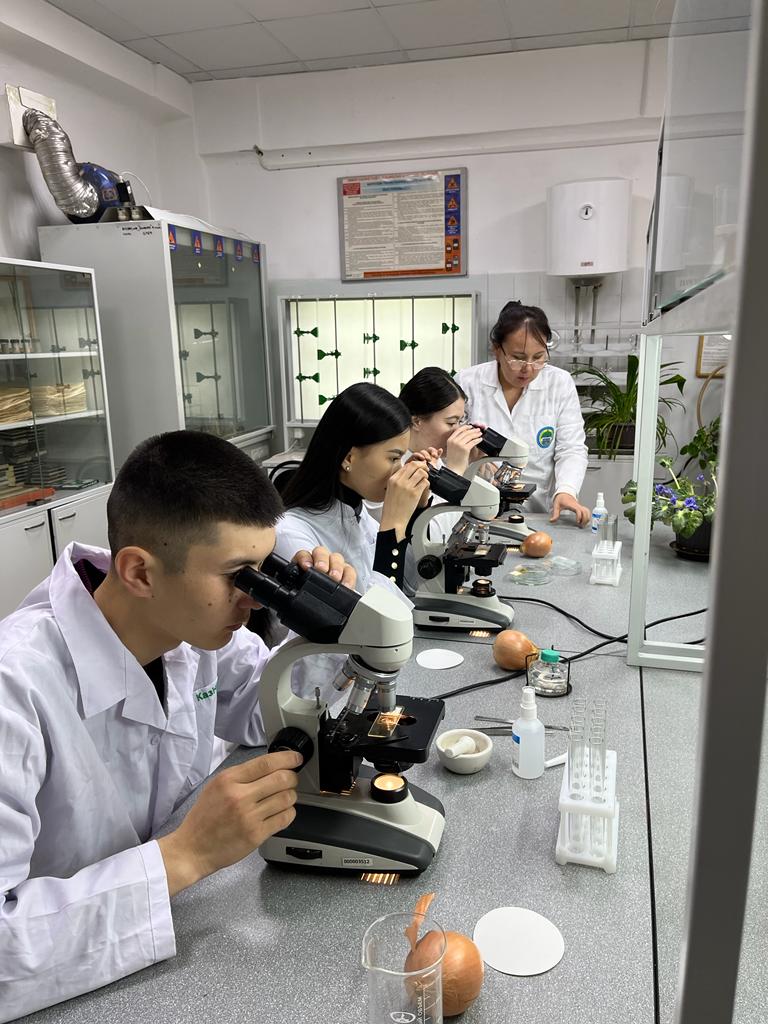-эколог-биолог,
- эколог-географ,
- эколог-топырақтанушы,
- эколог-физик,
- эколог-химик,
- эколог-эксперт,
- эколог-зерттеуші,
- орта және жалпы білім беретін кәсіби оқу орындарындағы география, экология және биология пәндерінің мұғалімі.
өндірістік, басқарушылық, ғылыми-зерттеу және білім беру саласы, экологиялық мониторинг қызметі, жоспарланған қызметті әзірлеу, мониторингтің экологиялық қызметі, табиғи ортаның сапасын және адам денсаулығын бақылау.
қоршаған ортаны қорғау бойынша территориялық басқармалар; ұлттық парктер, қорықтар, заказниктер, биосфералық резерваттар; өндіріс орындары; агроөндірістік кешендер; полигондар; энергетика объектілері, АЭС; білім беру ұйымдары; ғылыми-зерттеу институттары мен орталықтары.
- қоршаған ортаны қорғау бөлімдерінде экономика саласын дамыту бойынша мемлекеттік бағдарламаларды жасауға қатысу;
- экологиялық аудит пен экологиялық сараптама жүргізуге қатысу;
- қоршаған табиғи ортаның ластану деңгейін бағалауға зертханалық зерттеу жасау және материал жинақтау;
- кәсіпорынның экологиялық паспортын жасауға қатысу;
- экологиялық сұрақтар бойынша халыққа кеңес беру қызметін көрсету;
- қоршаған ортаны қорғау бойынша халық арасында тәрбиелік жұмысты ұйымдастыру;
- жоба алдындағы құжаттардың халықаралық стандарттар жүйесіне сәйкестігін экологиялық сараптау бойынша жұмысқа қатысу;
- қоршаған ортаны қорғау саласында және т.б. халықаралық конвенция талаптарына ҚР міндеттерін орындауына себепші болу;
өндіріске ғылыми-зерттеу жұмыстарының нәтижелерін енгізуге себепші болу.
1. Бағалау:
- экологиялық кадастр құру, биологиялық әртүрлілікті зерттеу, табиғи ортаның сапасын талдау;
- - ҚОӘБ және экологиялық аудит жүргізу.
2. Құрылымдық:
- шаруашылық қызметтің теріс салдарын болдырмау мақсатында табиғи ортаның сапасын нормалаудың практикалық ұсыныстарын әзірлеу;
- далалық және эксперименттік жұмыстарды ұйымдастыру мен жүргізуге қатысу;
- бұзылған экожүйелерді қалпына келтіру және табиғатты ұтымды пайдалану бойынша жаңа экологиялық әдістер мен технологияларды енгізу;
- қоршаған ортаға теріс антропогендік әсерді төмендету және биологиялық әртүрлілікті сақтау мақсатында әртүрлі өндірістердің экологиялық қауіпсіз технологияларын енгізу бойынша ұсынымдар әзірлеу;
3. Ақпараттық-технологиялық:
-жобалау-сметалық құжаттаманы және экожобалардың техникалық-экономикалық негіздемесін дайындау ережелері бойынша, аудит, сараптама жүргізу және қоршаған ортаға әсерді бағалау бойынша кеңес беруді жүзеге асыру;
-экожобаларды іске асыруға қатысу, жоспарланған қызметті әзірлеу;
- орта және кәсіптік оқу орындарында экологиялық білім беру, тәрбиелеу және ағарту бойынша оқу процесін ұйымдастыру және өткізу, халықтың әртүрлі топтары арасында экологиялық білімді насихаттау.
экологиялық қауіпсіздік және орнықты даму мәселелері;
- аз қалдықты өндірістерді іске асыру әдістерін қолдану және ауыл шаруашылығы қызметіндегі экологиялық және техногендік жағдайларды бағалау саласында;
- экологиялық модельдерді құру және олардың салдарларын мониторингілеу және болжау үшін ғылыми зерттеулерде пайдалану әдістерінде;
- антропогендік қызметтің экологиялық-экономикалық салдарын бағалау;
- табиғатты қорғау заңнамасы негізінде экологиядағы менеджмент және маркетинг мәселелерінде;
- қалалар мен табиғи ортаның экологиялық қауіпсіздігін қамтамасыз етуде;
- жаңа табиғатты қорғау және ресурсүнемдеу технологияларын пайдалануда.



